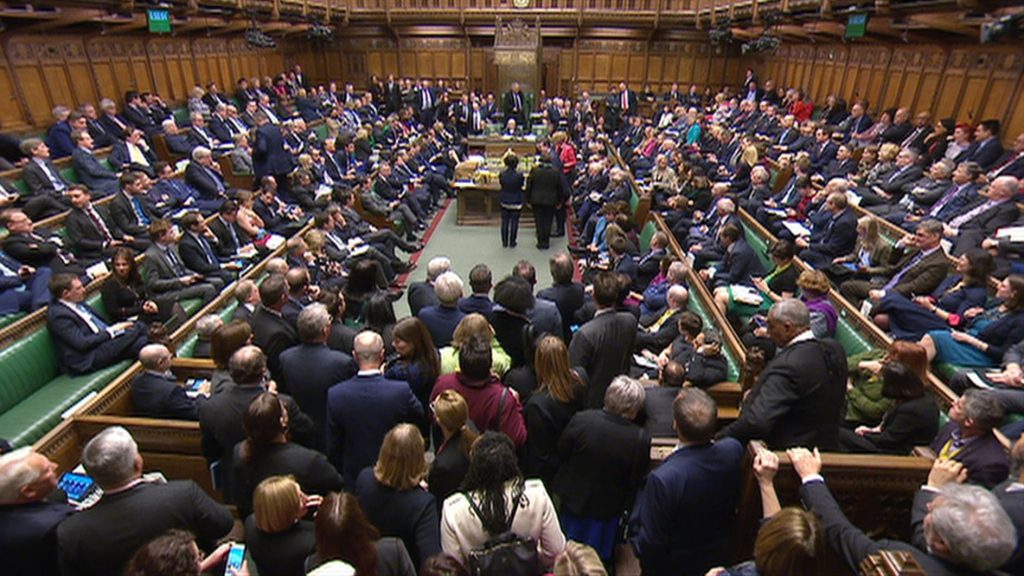
I reached the Houses of Parliament last Wednesday feeling rather windswept and I had a short walk across Westminster Bridge to thank for that. As I entered the House of Commons public gallery the mood was tense. I soon learnt that, as the Second Reading of the European Union Withdrawal Bill (6) was passed by an overwhelming majority, I was not the only person going to be battered from all sides.
From that point forward amendments were put forward by Richard Graham MP, Stephen Kinnock MP, Sir William Cash MP, Sir Christopher Chope MP to name a few that were vehemently disputed in the chamber during the Committee Stage of the Bill. Points of Intervention came thick and fast.
Members spoke with varying degrees of coherency; Richard Graham MP and Stephen Kinnock MP spoke with great conviction and eloquence in their attempts to create unity and compromise across the House. Unfortunately, the same could not be said for all. A low point of the evening was Sir Christopher Chope describing the Bill as a form of “modern international slavery”. This level of exaggeration was not well received in a place where theatre and the hyperbole that it entails is not uncommon. Little did we know that this was merely the beginning of a long evening, packed with drama, upset and emotion.
The Prime Minister finally entered the chamber at around 19:15 to be met with a handful of MPs who raced through the house to form a group around Mr. Johnson outside the ‘No’ lobby as Richard Graham’s amendment was voted on. It lost by 430 votes. This was not surprising but disheartening nonetheless.
This was just the warmup, the crowd teaser, before the prizefight that was approaching. At 19:50 the PM tabled a motion to call a general election for October 15. The political games were well and truly underway. It put the Conservatives and the Labour Party in a rather awkward position. If the Conservatives voted for it, which they did then, should it be passed, they would have to fight for their seats having spent three years in government failing to pass Brexit and looking weaker by the day. The Labour Party have been calling for a General Election since Theresa May regained her premiership after the snap election of 2017. However, should a General Election be called, Parliament would be suspended so that MPs could campaign thus making a ‘No Deal’ Brexit all the more likely. Labour could not let that happen hence the vast abstention across the opposition benches. It didn’t pass as it was 136 votes short of the 2/3 majority (434 votes) required under the Fixed Term Parliament Act 2015.
There were two notable scenes from the evening that cut through the vast majority of political rhetoric and point-scoring that was taking place. One was loud, impassioned and noticeable; the other could have been missed if you looked away at the wrong moment. The first was Jess Phillips’ MP speech which encapsulated the exasperation many in the country feel regarding, not just the mismanagement of Brexit, but the level of distrust in politicians and Boris Johnson in particular. It was fierce, direct and at times, perhaps, a little unparliamentary but absolutely necessary.
The second was far more poignant. As the Conservative benches cleared at the Division for the motion for the General Election there was one figure that remained sedentary for a brief period of time. Kenneth Clarke MP had the whip taken away from him in the unceremonious expulsion that 21 MPs suffered. Mr Clarke is the ‘Father of the House’, the longest serving MP in the House having sat since 1974. He has been a stalwart in upholding Parliamentary principles even when his party did not, hence his most recent rebellion. He cut a dejected figure among the chaos but a resolute one. After a few brief moments he came to his feet and walked purposefully down the lobby to vote against Boris Johnson in his latest act of rebellion.
This is one of the real dangers of Brexit. Parliamentary procedure is disregarded, factionalism is rife and this leads to a fertile breeding ground for populism and extremism. Men and women of principle are starting to emerge but unfortunately they all appear to be on the wrong side of power.
